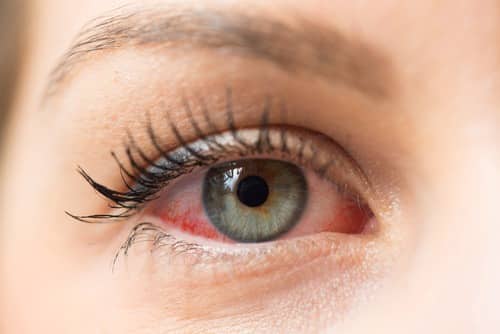As an eye care center in Summerville, SC, we know that your eyes are susceptible, which is why it’s no wonder that you are highly protective of them. Without our eyes, we lose out on an entire sense. When inflamed, injured, or infected, it isn’t just something we can wait out, especially when you factor in the reality that many eye infections can result in blindness if left untreated.
Your eyes are special. You buy sunglasses to protect them from the sun, just as you would book an eye exam when something is wrong. Always take care of your eyes, starting with this guide:
Six Common Eye Infections
Some of the most common eye infections to make a note of include:
1. Conjunctivitis
This eye infection is widespread due to how contagious it is. Schools are a particular target due to the proximity of the children but make no mistake. Your child can develop conjunctivitis (otherwise known as pink eye) from bacterial origins as well as viral. If the mother had an STD, there is also a risk her baby was born with the infection, so the source is not always obvious, and it is also not contained amongst children – adults can also develop it.
2. Viral Keratitis (Viral Eye Infection)
Another variation of infection similar to conjunctivitis is Viral Keratitis like Ocular Herpes. It develops when the eye is exposed to the Herpes Simplex virus.
3. Fungal Keratitis
This type of infection was made famous back in 2006 when a contaminated contact lens solution was put on shelves. Where you would likely develop this type of infection, however, is outdoors. Fungal Keratitis occurs when fungal cells penetrate your eye, so if you ran through the woods and had unfortunate contact with a tree branch in your eye, visit your eye doctor to get it checked out by a Summerville, South Carolina United States optometrist.
4. Acanthamoeba Keratitis
Contact lenses can be very dangerous to wear without the proper safety precautions due to the proximity to your eye. For example, if you go swimming, a parasite can enter your contact lens and, if you don’t immediately clean your contact lens, it could bury into your eye. Acanthamoeba Keratitis can be easily avoided by taking contact lenses out when you swim or go in a hot tub, but if you do swim with them, disinfect with in-date products as soon as you finish.
5. Trachoma
Though rare in the United States, Trachoma is incredibly dangerous and is considered a leading cause of blindness globally. It spreads through infected flies and causes your inner eyelids to scar over, forcing the eyelid to turn inwards and your eyelashes to brush against your cornea. This contact over time will cause permanent blindness. If you suspect you have Trachoma, visit a Summerville, South Carolina eye doctor immediately.
6. Endophthalmitis
Another infection that can make you suffer blindness without treatment is Endophthalmitis, which penetrates inside the eye. This infection can occur after any penetrating eye injury, even eye surgery. You will need antibiotics to treat this infection, so book an appointment with a Summerville, South Carolina optometrist as soon as possible.
Complications That Can Occur
Left untreated, several complications can occur. Eye infections that irritate your eyelids might develop a stye or chalazion. If there is an infection in your tear gland, you might develop dacryostenosis, dacryocystitis, or uveitis.
In other cases, your eye infection might not be due to bacterial or viral origins and instead is a symptom of a more severe eye issue, like a corneal ulcer. If left untreated, this ulcer will cause vision loss.
Symptoms You Should Watch Out For
Though many eye infections will go away on their own, that doesn’t make them any less serious. If you find that your eye isn’t getting better after an irritant enters it, and is in any way getting worse throughout a day, contact your Summerville, South Carolina eye doctor.
- Red eyes
- Pain
- Watery eyes
- Dry eyes
- Swelling
- Itchiness
- Discharge from eyes
- Sensitivity to light
- Blurriness
If any of these symptoms persist for more than an hour, you should consider getting it looked at. Having dust go in your eyes and causing them to worry is not an immediate cause for concern, for example, but if a few hours have gone by, you’ve flushed your eye, and there are still problems, you might have something more pressing to deal with on your hands. It is always better to be safe than sorry.
Treatment Methods
Some treatment methods you can expect when you have an eye infection include:
1. For Bacterial Eye Infections
For bacterial eye infections, patients can expect to use:
- Antibiotic Eye Drops
- Ointments
- Compress
2. Viral Eye Infections
Viral eye infections can range from serious contaminants to simple dust. Most go away on their own, but if the problem persists after a few hours, visit your eye doctor, as you might need an antiviral eye drop or steroid eye drop to reduce the inflammation and clear your eye. In some situations, you might have to take oral medication like antibiotics.
How to Prevent Eye Infections in the Future
Dealing with an eye infection can be incredibly painful and even terrifying. If your vision blurs or even starts to fade, you may have a genuine concern that the infection might be causing blindness. Avoid future eye infection risk by being diligent about your eye safety. Clean your hands before you rub your eyes, don’t share towels or other items that your eyes touch with someone who has an infection, and when you wear contact lenses, ensure you always follow all relevant safety procedures.
You also will want to avoid sleeping in your contact lenses, even if you have the breathable silicone hydrogel contact lenses that state you can. This reduces the risk of developing an infection. Another way to prevent infections from occurring is to protect your eyes when possible. If traveling through a dusty area, for example, choose sunglasses from our Summerville, South Carolina store to keep your eyes protected from the harsh glare of sunlight and from a lot of airborne particles that could get into your eye and irritate it.

